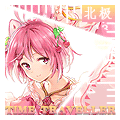Do you have shelves full of unread books? Does it seem like you never have the time – or the energy – to read?
A lot of us want to read more – whether that’s for work, education or pleasure. But even if you love reading, it can still be tough to find the time to sit quietly with a book.
If your books are gathering dust on the shelves, here’s how to read more this year.
Choose Books You Want to Read
Perhaps you have a stack of books that you feel you should read. They might be books that friends have praised, books which won prizes, books which are work-related…
The thing is, you don’t have to read anything. Sure, there are some fantastic classics out there that might change your life – but not if you can’t get past page ten.
What really matters is that you pick books which you want to read. Not the books that “everyone” is talking about, not the books that’ll impress your friends. If you want to read the classics, read them for good reasons – not just because you’re embarrassed that you’ve never read them before.
How do you know what you want to read? Look for:
Not all books grab you from page one. When you start reading, you might know nothing about the subject matter (if it’s non-fiction) and you won’t feel any particular attachment to the characters (if it’s fiction).
So give yourself time to get started. Don’t pick up a new book when you’ve only got five minutes to spare. It takes a while to get “into” a book, but once you’re engaged, you’ll find that it’s easy to keep reading.
Conversely, if you’re not enjoying a book after you’ve read 50 pages or so, then consider ditching it. There’s no rule that says you have to finish every book you start.
Keep a Book Nearby
I’ve spent the past two weeks doing jury service, and I was very glad I’d taken books along with me! There was a lot of sitting around, waiting for things to happen – and I ended up finishing one book and reading three more.
It’s good to get into the habit of keeping a book near you. Any time you go out – particularly if you have an appointment or meeting – pop a book into your bag. If you end up waiting around for some reason, you’ll have something to do.
The same applies at home. Keep your book-in-progress on the coffee table, or at the side of your bed – anywhere that you’re likely to see it and pick it up.
Try an Ebook Reader
I’ve loved books all my life. I like the smell of them, the feel of the pages, the clear text on printed paper…
But last month, I got a Kindle, and I’m enjoying that too. Of course it’s different from a printed book, but it has a lot of advantages too – I can highlight passages without damaging the book, I can carry lots of books in a single device, and I can get classic books for free.
If you’ve never tried an ebook reader, I’d encourage you to take a look at a friend’s, or try using one in a computer store. You might find that it’s a much better experience than you’d expect – and you may well end up reading more books.
A lot of us want to read more – whether that’s for work, education or pleasure. But even if you love reading, it can still be tough to find the time to sit quietly with a book.
If your books are gathering dust on the shelves, here’s how to read more this year.
Choose Books You Want to Read
Perhaps you have a stack of books that you feel you should read. They might be books that friends have praised, books which won prizes, books which are work-related…
The thing is, you don’t have to read anything. Sure, there are some fantastic classics out there that might change your life – but not if you can’t get past page ten.
What really matters is that you pick books which you want to read. Not the books that “everyone” is talking about, not the books that’ll impress your friends. If you want to read the classics, read them for good reasons – not just because you’re embarrassed that you’ve never read them before.
How do you know what you want to read? Look for:
- Recommendations from people who like the same books that you like.
- Genres which you enjoy – science fiction, romance, historical, etc. There’s plenty of great genre fiction out there.
- Books written by authors who you’re already familiar with. Perhaps you’ve read their other books, or their blogs.
Not all books grab you from page one. When you start reading, you might know nothing about the subject matter (if it’s non-fiction) and you won’t feel any particular attachment to the characters (if it’s fiction).
So give yourself time to get started. Don’t pick up a new book when you’ve only got five minutes to spare. It takes a while to get “into” a book, but once you’re engaged, you’ll find that it’s easy to keep reading.
Conversely, if you’re not enjoying a book after you’ve read 50 pages or so, then consider ditching it. There’s no rule that says you have to finish every book you start.
Keep a Book Nearby
I’ve spent the past two weeks doing jury service, and I was very glad I’d taken books along with me! There was a lot of sitting around, waiting for things to happen – and I ended up finishing one book and reading three more.
It’s good to get into the habit of keeping a book near you. Any time you go out – particularly if you have an appointment or meeting – pop a book into your bag. If you end up waiting around for some reason, you’ll have something to do.
The same applies at home. Keep your book-in-progress on the coffee table, or at the side of your bed – anywhere that you’re likely to see it and pick it up.
Try an Ebook Reader
I’ve loved books all my life. I like the smell of them, the feel of the pages, the clear text on printed paper…
But last month, I got a Kindle, and I’m enjoying that too. Of course it’s different from a printed book, but it has a lot of advantages too – I can highlight passages without damaging the book, I can carry lots of books in a single device, and I can get classic books for free.
If you’ve never tried an ebook reader, I’d encourage you to take a look at a friend’s, or try using one in a computer store. You might find that it’s a much better experience than you’d expect – and you may well end up reading more books.





